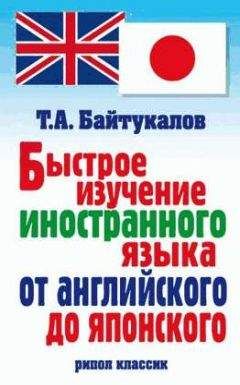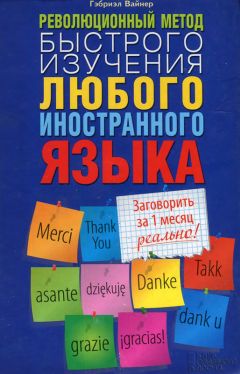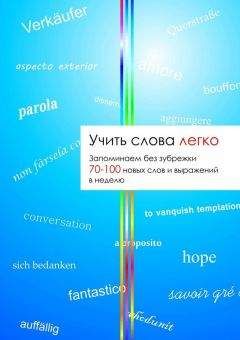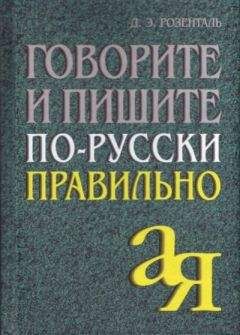Мария Аполлова - Specific English. Грамматические трудности перевода
II. Укажите, в каких из нижеследующих предложений предложные дополнения функционируют как обстоятельства или определения. Переведите все предложения на русский язык.
1. There was a breathlessness to her voice. 2. What did she want with me? 3. The dining-room was a fitting frame to her fragile beauty. 4. There was a long silence before Bateman spoke again and with each of them it was filled with many thoughts. 5. Supporting this view were predictions that the Duke of Croydon might soon be named British Ambassador to Washington. 6. The touch of the pillow to her face was cool. (или другим детерминативом): the theft much vaunted group группа, столь превозносимая в то время, the more than 40 years’ experience of cooperation более чем сорокалетний опыт сотрудничества и т. п. 7. This is a tap for cold water. 8. Beside the fireplace old Doctor Winter sat, bearded and simple, historian and physician to the town. 9. Madame inspected the table for dust with her finger. 10. I’ve heard a few specific law decisions mentioned tonight. If you wish, I’ll tell you another side to them. 11. Awareness of the crisis with Trans American Flight Two came to Keith gradually. 12. The boy watched the fort for soldiers. 13. She came from Leicester where she had been a reporter on a local newspaper. 14. There’s another aspect to the matter. 15. Three British officers serving with the Sultan of Oman’s armed forces were killed on Sunday when their helicopter was shot down by Dhofar Liberation guerillas. 16. I’m a cop, and there’s only one side to the law for me. 17. I recognised her for a lobster boat, bringing a catch from Sardinia.
III. А. Переведите следующие предложения. Обратите внимание на различное место обстоятельств образа действия в предложении.
1. The room was empty and, unusually, moisture dimmed his eyes. 2. Momentarily, Tanya lost her poise. 3. He was uncomfortably aware of a nervous constriction in his throat. 4. Oddly, Leesburg was distant from any airport. 5. She was characteristically frank. 6. «No!» Viciously, Warren Trent stubbed out his cigar. 7. Surreptitiously, Peter Coakley yawned. 8. Patsy Smith nodded miserably. 9. Happily he added the cash to his own wallet. 10. As I fully expected he had refused. 11. Typically, the four young men who comprised the TV crew had taken over as if the entire event had been arranged for their convenience. 12. Tragically, however, the instruction had resulted in at least one aircraft breaking apart. 13. Usually, controllers worked in shirtsleeves. 14, Mentally, Mel Bakersfeld filtered out most of the exchange, though he was aware that what had been said about conditions away from the terminal was true. 15. Earlier she had despatched her maid on an invented errand and, cruelly, instructed the moon-faced male secretary – who was terrified of dogs – to exercise the Bedlington terriers. 16. Normally, the immediate sense of pressure on entering the control area made it customary to give a hurried nod or a brief «Hi!» – sometimes not even that. 17. Superficially, little had changed since a few moments ago. Yet, subtly, the relaxed mood prevailing earlier had vanished. 18. Hesitantly, Mrs Quonsett released her seat belt. 19. More conventionally, Anson Harris added a «Good evening». 20. Briefly, the policeman seemed ready to vent his anger, then decided otherwise. 21. She appeared actively to dislike him. 22. The food, surprisingly, was French. 23. How soon, he began to wonder, could he decently go back to London? 24. He was haunted by the image, the snapshot vision, which he had received in the cemetery, of Emma and the girl, black rainswept figures, clinging grotesquely together. 25. Emma still, magnetically, existed. 26. They were often thus happily silent together. 27. Wisely, Ross didn’t answer.
Б. Переведите нижеследующие предложения на английский язык. Выделенные слова и словосочетания переведите наречием образа действия.
1. Джейн с несчастным видом кивнула головой. 2. Лиз со злостью ущипнула ее за руку. 3. Обычно они работали в этой комнате. 4. Как ни странно (curiously), именно эта речь Джеймса и сблизила их (to bring together). 5. Какое-то мгновение она, казалось, готова была ударить его, но сдержалась. 6. Он возмущенно поднялся с места. 7. Он подчеркнуто (emphatically) предупредил, что беспорядков быть не должно. 8. Затем, как это ни было невероятно, он согласился. 9. В уме он взвесил все возможности. 10. Обычно лишь немногие знали о таких происшествиях. 11. Время от времени (periodically) появлялся Перри. 12. Он подмигнул мне украдкой. 13. Как это было для него характерно, он говорил откровенно. 14. Хью рассчитал, что завтра ему будет уже вполне удобно (decently) сказать Энн, что он уезжает во вторник. 15. Вдруг ему пришло в голову, что, как это ни парадоксально, Рэндолл, возможно, завидует ему.
IV. Переведите следующие предложения на русский язык. Обратите особое внимание на место и перевод наречий на -lу.
1. Deep in her, under layers of hurt pride and cold practicality, something stirred hurtingly. 2. And always she wondered sneeringly why Melanie did not realise that Ashley only loved her as a friend. 3. Ann had increasingly taken over the management of the nursery. 4. «I have caused all this,«he thought desparingly. 5. Her fingers clenched as she looked unseeingly into the rain. 6. Her slipper patted longingly. 7. His white teeth gleamed startlingly against his brown face. 8. He proceeded musingly to shake sugar into his coffee. It was screamingly funny. 10. It was distressingly plain that a crisis abruptly appeared. 11. «You may kiss me,«said Granma, surprisingly, and she smiled in her most approving manner. 12. They were dancing to the most maddeningly ludicrous tunes from the piano. 13. But he remained annoyingly unlover like and, worst of all, seemed to see through all her manoeuvrings to bring him to his knees. 14. Confederate money had dropped alarmingly and the price of food and clothing had risen accordingly. 15. Recently, though, he had found himself increasingly aware of just how attractive she was. 16. The boy agreed trustingly. 17. The law of noise, he declared, was increasingly under study by the nation’s courts. 18. Curtis O’Keefe amusedly pictured the havoc which the prolonged call was causing at the busy room-service order desk eleven floors below. 19. At a time when he was supposedly on duty and required elsewhere in the hotel, he was discovered in a bedroom with a woman guest. 20. He won deredidly where his brother-in-law was going at the moment and if it involved one of his amorous adventures, of which – reportedly – there were a good many. 21. She had to reveal the truth in her own – admittedly magnificent – way. Admittedly party labels do not count for everything. He reportedly said his plan was «a great idea» to discover who had given «The Times» the secret papers. 24. Would he, exasperatingly, go only partly, but not quite enough?
V. Замените выделенные курсивом слова наречиями на -lу. Переведите предложения на русский язык.
1. She cast an appealing look at the two girls. 2. Giggling, he called Miss Gray a fool. 3. With ablush she told him about her error. 4. She thought with despair that she had failed. 5. With unseeing eyes he was staring into the fire. 6. The music was so loud that it could drive one mad. 7. Delegations inspected the new tool with admiration. 8. Her husband became more and more moody and bad-tempered. 9. To his surprise, the response was mild compared with the asperity of a few minutes earlier. 10. The causes with which Cindy involved herself were so similar as to be depressing. 11. Stammering, he assured her that he had no intention of hurting her feelings. 12. It surprised her that his hands were so gentle. 13. She banged her brush against her temple so that it hurt. 14. As was alleged, they have signed a secret treaty. 15. As reported, the goods have been despatched. 16. Bosinney replied with a smile: «Oh, no!»
VI. Переведите следующие предложения на русский язык, обращая особое внимание на перевод наречий на -lу.
1. The country was hard up financially. 2. Tevis sat centrally in the radar room on a high stool. 3. She was not basically unkind. 4. That was substantially a day of Stahr’s. 5. We are fundamentally alike. 6. Economically, the country has no rivals on the world market. 7. Ann’s Christian piety, though doctrinally a little vague, was unwavering. 8. She saw, fragmentarily, the black square glass and the red eyes of the beating moths. 9. Hugh reflected that it was a peaceful scene, a scene even of positive innocence: an innocence to which Penn youthfully, Swann professionally, and Ann with some more subtle resonance of the spirit, contributed each their note. 10. «The New York Times» pointed out editorially… 11. The petition is being circulated nationally. 12. Under the term of lipids (липиды) are included a great diversity of naturally occurring substances. 13. Certain types of chemical substances are known collectively as mutagens. 14. These results are represented diagrammatically in figure 1. 15. There is a very big improvement on what I saw in 1966, both artistically and technologically.
VII. Переведите следующие предложения с «перенесенным эпитетом». При переводе перестройте предложения в соответствии с нормами русского языка.
1. Не raised a supercilious eyebrow when he observed that I took it with calm. 2. He shrugged a Gallic shoulder. 3. He would argue, cajole, lose his temper, start for the door in frowning anger. 4. The thought reminded him of the annoying two days he would have to wait for confirmation. 5. She relapsed into an infuriated silence. 6. The girls were sharing giggled confidences. 7. Then the train came out on the sea – lovely bays with sand and grass and trees, sloping up towards the sudden hills that were like a wall. 8. «Well, sir,«began the former, with smiling importance, «and what may–?» 9. He was sitting in dazed silence after Albert Wells’ announcement. 10. «All tied up with confessions and everything!» he said, lifting a knowing finger. 11. They did not find the trail again for an agonising ten minutes. 12. Then the laughing words of Ashley came back to her. 13. «Go and never come back!» he said, pointing a dramatic finger to the door. 14. He gave a little gulp of astonished laughter. 15. She shrugged a mental shoulder. 16. Then with a muttered curse he turned and grabbed the lever. 17. She raised an inquiring eyebrow. 18. «Well!» Milo exclaimed, with thin-lipped disapproval. «He certainly found out how wrong he was, didn’t he?» 19. This was the only topic that could rouse them out of their staring and shivering apathy. 20. I crossed an admiring heart. [9] 21. His wife welcomed me into the spiced heat of the oven room. 22. Clearing a place on her work-table, Mrs County set me down to a cup of coffee and a warm tray of cinnamon rolls. 23. They swaggered up the path. First, Junuis Candle, his Sheriff’s star winking in the dusk; and after him, Big Eddie Stover, whose squint-eyed search of our hiding places reminded me of newspaper picture puzzles. 24. Jose withdrew to the front room, where he released his temper on the snooping, tiptoeing presence of Madame Spanella. 25. He saw a twinkle of amusement in Cooper’s eyes, and he flushed an angry red. 26. John murmured a rapturous assent. 27. His firm chin and the buttoned strictness of his black coat conveyed an appearance of reserve and secrecy.
VIII. Преобразуйте следующие предложения таким образом, чтобы употребить «перенесенный эпитет». Переведите их на русский язык.
1. Her lips on his could tell him better than all the words she stumbled. 2. Obstinately Valentin relapsed into silence. 3. And he lifted his finger warningly. 4. When, at last, they stood together to be married, her little hand confidingly in his, he still did not know how it all came about. 5. Surprised, he drew a sharp breath. 6. When we got into the street Isabel smiled and gave me a sidelong glance. 7. Elliott raised an eyebrow disapprovingly. 8. He shrugged his shoulder with a tolerant air. 9. After the first shock of astonishment and anger she tried to persuade herself that she could have understood, and so have forgiven, if he had fallen in love with a girl. 10. She slid past Hugh murmuring «Good-morning». 11. Aristide smiled in his roguish way and raised his hand deprecatingly. 12. He raised his eyebrows in surprise.
Определение
В английском языке существует два вида определений: препозитивное и постпозитивное. Наибольшее распространение в английском языке получил первый вид определения, а именно препозитивное. Англичане как бы стремятся к тому, чтобы появление того или иного предмета в нашем сознании не было абстрактным, не подготовленным конкретными определениями, теми или иными ограничителями. Этим обусловлено обязательное наличие какого-либо детерминатива перед существительным. Отсюда же проистекает развитие атрибутивного употребления существительного в препозиции к другому существительному: the table top, a shop door и цепочки определений: a strict never-to-be-late warning.




